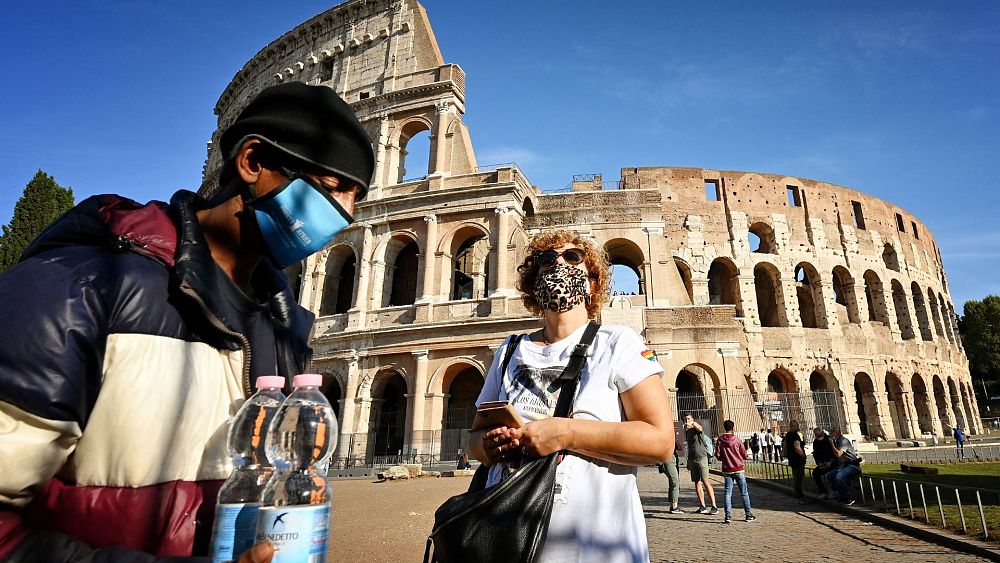The days of frantically hoping your COVID test would be negative some 48 or 24 hours before your flight or train are luckily behind us. But the worry you'll catch the virus is still very present as no one wants to spend their holiday feeling unwell.
There are now no COVID-19 entry restrictions for Europeans in any country in Europe but the rules on what to do if you catch COVID whilst abroad still varying enormously.
So what should you do if you catch COVID while travelling?
So here’s everything you need to know if you catch COVID while in Europe, including where you can buy COVID tests and how long you need to self-isolate for.
Entry rules and remaining travel restrictions for every country in Europe are available here.
France: Wash your hands and live life as normal
France no longer has any COVID-related travel restrictions. This means travellers arriving into the country - mainland or overseas - do not have to present a COVID certificate, complete any document testifying to not having the virus or take any tests.
The French health ministry has also scrapped the obligation to wear face masks. Mask-wearing is no longer required in public buildings or on public transport like trains, buses, ships, boats and planes. It does however, remain at the discretion of health and medical environments to decide if they are necessary for those over the age of six.
If you test positive for coronavirus while in France, you no longer have to self isolate. However people are still recommended to maintain good hygiene and avoid vulnerable people whilst infected.
In France, COVID tests are available in most pharmacies and in testing centres.
Germany: Masks and self-isolation rules
There are currently no entry restrictions for those wishing to visit Germany. Travellers do not need to show proof of vaccination or a negative test.
FFP2 face masks are currently obligatory in hospitals and in medical centres but no longer on public transport.
Rules vary in Germany depending on regions. Some advise those who test positive for COVID-19 to self-isolate whereas in other regions, it is mandatory.
At-home tests can be purchased from supermarkets and pharmacies and certified tests are available at testing centres.
Greece: Self-isolation rules and mask-wearing
Greece have scrapped all COVID restrictions for entering the country.
Masks are not required out and about or in restaurants anymore, but are still mandatory in healthcare settings - including hospitals, care facilities for the elderly and pharmacies - and on urban public transport, taxis and indoor spaces on boats.
It is no longer mandatory but travellers are still advised to self-isolate for 5 days if they catch COVID-19 in Greece. If you have to use public transport (i.e to travel home) whilst infected, you must wear a FFP2 face mask.
Greek pharmacies give out free COVID tests - but you are only entitled to one free kit per week (four per month).
Italy: Self-isolation rules and where you have to wear a mask
COVID restrictions have been lifted in Italy, and the country no longer requires any proof of vaccination, a negative test result or a COVID recovery certificate to let travellers in, whether they are vaccinated or not.
FFP2 face masks are no longer mandatory on public transport, such as planes, trains and buses, but they are still obligatory when visiting a hospital or a care home.
Italy still has some of the strictest quarantine rules in Europe.
If you test positive, but are asymptomatic you must self-isolate for five days. You can release before the fifth day if an antigen test carried out at a health facility/pharmacy is negative.
Those who entered Italy from China in the seven days preceding the first positive test, will be able to end isolation after a minimum period of five days from the first positive test, if they have been asymptomatic for at least 2 days and produce a negative antigen test.
Once out of isolation, you must still wear an FFP2 mask when out in public until day ten.
Portugal: Self-isolation and mask rules
Travellers arriving in Portugal from abroad are no longer required to show proof of vaccination or a negative COVID test to enter the country
Wearing a mask is mandatory only in hospitals and other health facilities, while it's recommended -- but not legally required -- by anyone above the age of 10 in closed indoors spaces and big gatherings, public transport and taxis, and pharmacies.
You can buy COVID tests in supermarkets in Portugal. If you test positive while in Portugal you no longer need to self-isolate.
Spain: Self-isolation, testing and rules on masks
There are no longer any entry restrictions for those wishing to visit Spain. Travellers from inside and outside the EU are not required to show proof of vaccination or a negative COVID test.
It is now only compulsory to wear a mask in medical settings in Spain.
If you develop symptoms or test positive for COVID, you are recommended to avoid crowded spaces and large events for 10 days, reduce social interaction and wear a face mask.
There is no requirement to self-isolate but you should inform those that you come into contact with that you have COVID.
In Spain, rapid lateral flow tests - known as 'pruebas de antígenos' - are available in pharmacies for free.
UK: Testing, self-isolation and mask rules
Travellers arriving in the UK are not required to take a coronavirus test or show proof of vaccination, except for those travelling from mainland China who must show a negative test.
The UK has scrapped nearly all COVID restrictions. Visitors who have symptoms or contract COVID are not required to self-isolate but are recommended to try to stay indoors.
COVID tests are no longer free in the UK apart from for care home residents or NHS staff. However, they can be purchased from pharmacies and large supermarkets.


